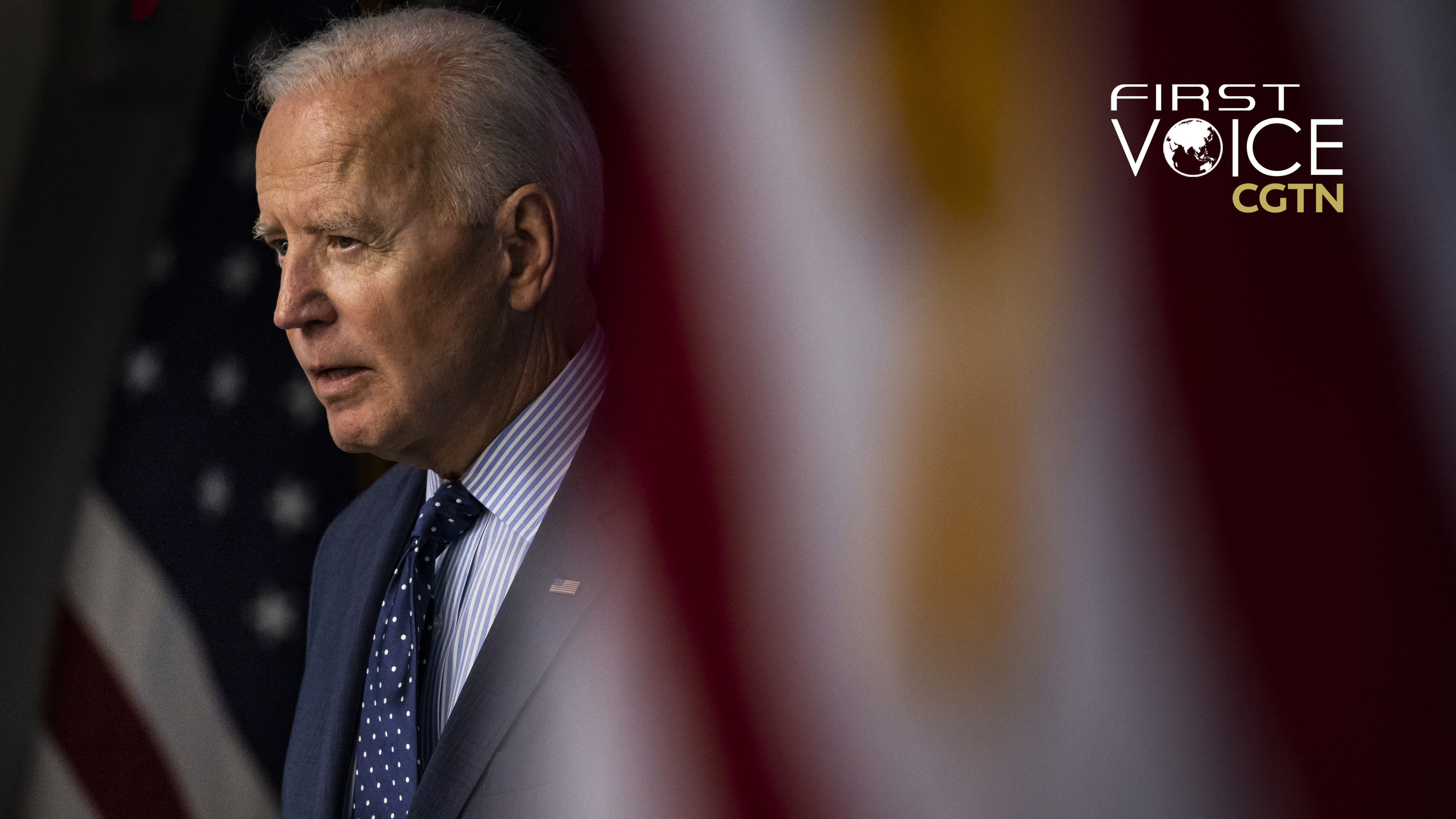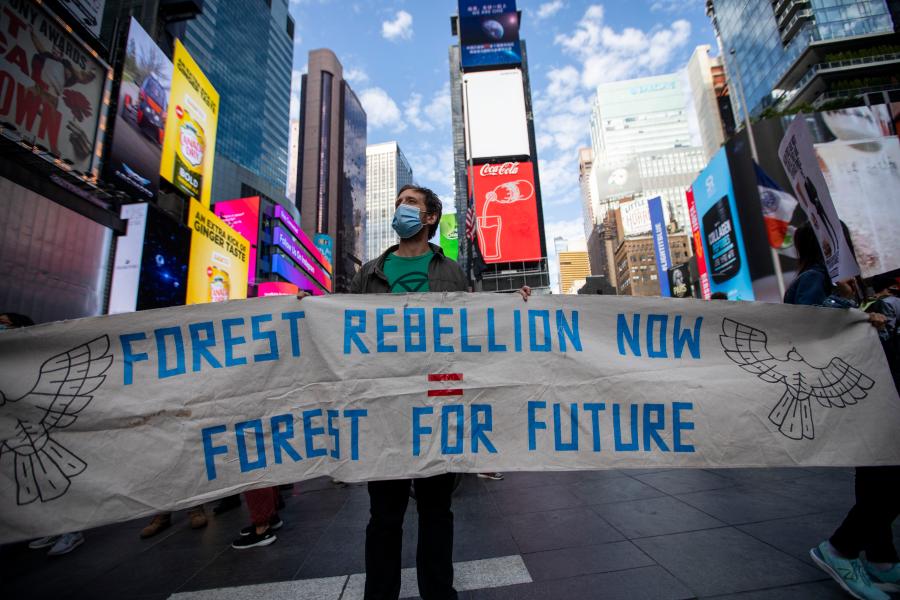
Editor's note: CGTN's First Voice provides instant commentary on breaking stories. The daily column clarifies emerging issues and better defines the news agenda, offering a Chinese perspective on the latest global events.
Joe Biden is traveling to Europe with the hope of rallying the world's democracies to end the COVID-19 pandemic, counter the worsening climate crisis, and confront what he calls the "harmful activities" of the governments of China and Russia. In an op-ed published on June 6, Biden wrote about his goals for his trip – calling for the democracies of the U.S., Europe and the rest of the world to rally together to protect their shared interests.
This sounds very noble and inspiring, but are the interests of these countries aligned? Is the idea of democracy enough to unite these countries to take a stand against a country simply because it has a different system of government, such as China? Biden himself acknowledges that the idea of democracy itself is in crisis. In his essay, he questions whether democracies can deliver results for their people in a rapidly changing world, and if democratic alliances and institutions have the capacity to meet modern-day threats.
Biden believes the answer is yes, but his European allies are surely considering the same question. After all, in the U.S., democracy itself is under threat. The U.S. Congress was sacked in January by rampaging supporters of then-President Donald Trump. The country is so divided that Congress could not even agree to launch an independent investigation of the violence. In fact, the country cannot even agree who the true president is – with 53 percent of Republicans believing it is actually Donald Trump, according to a May Reuters/Ipsos poll.

Violent protesters storm the U.S. Capitol, Washington, D.C., January 6, 2021. /AP
Violent protesters storm the U.S. Capitol, Washington, D.C., January 6, 2021. /AP
While Europeans are perplexed by the confusion and mayhem in the U.S., they are wondering if the U.S. can be a reliable partner. After former President Trump visited the continent, German Chancellor Angela Merkel concluded the U.S. cannot be one. She declared the days when Europe could rely on the U.S. were "over to a certain extent" and that Europe "really must take our fate into our own hands."
Biden hopes to heal the diplomatic damage done by his predecessor and rally his European allies around the causes of countering COVID-19 and climate change. However, the U.S. not only bungled its own response to the pandemic, but also hamstrung the global response by spreading disinformation and fanning the flame on the Wuhan lab-leak theory, even going so far as to ask the intelligence community for an investigation after WHO experts and independent scientists have claimed the improbability of that being the case. The U.S. has also behaved extremely selfishly with regard to offering aid or sharing vaccines with other nations, vowing to take care of itself first.
Biden's hope to rally Europe around the cause of climate change faces similar challenges. The U.S. sat on its hands for four years under the Trump administration, which claimed that climate change was not a man-made problem. Democrats like to pretend U.S. obstruction to cooperation on climate change began and ended with the previous administration, but the world remembers this is not the case. The U.S. never ratified the 1997 Kyoto Protocol, or the follow-up 2012 Doha Amendment. It is a positive development that the Biden administration wants the U.S. to finally take climate change seriously. But in terms of partnership, the U.S. has been failing miserably.

A man takes part in a climate change protest in Times Square in New York, U.S., September 20, 2020. /Xinhua
A man takes part in a climate change protest in Times Square in New York, U.S., September 20, 2020. /Xinhua
As to leading the world in an economic recovery, the U.S. is still struggling to get its own house in order while China has actually been the driving force of economic growth in the wake of the pandemic. Bloomberg predicts China will contribute more than one-fifth of the total increase in the world's gross domestic product in the five years through 2026, based on IMF forecasts published in April.
In a stroke of coincidence and irony, the U.S. accused China of using its technologies to gain unfair advantages and intrude in European countries while U.S. itself has been exposed, yet again, tapping into European leaders' phones and mining their records. If the U.S. is really sure of its European allies' political inclination or "values," one must ask: What is the point of spying on them then?
"You are either with us or against us," former President George W. Bush once said. By dividing the world based on Western democracy and those who are not, Biden is doing the same, albeit with a loftier and prettier façade. The U.S. failed in facing one of the most pressing crises humans have faced in recent history. It has failed to be a model in governance and social justice. The country Biden inherited doesn't have the credibility to use political abstractions and nostalgic slogans to put outdated alliances back together.
And no one heeds a rallying cry just because it is shouted out the loudest.
(If you want to contribute and have specific expertise, please contact us at opinions@cgtn.com.)

